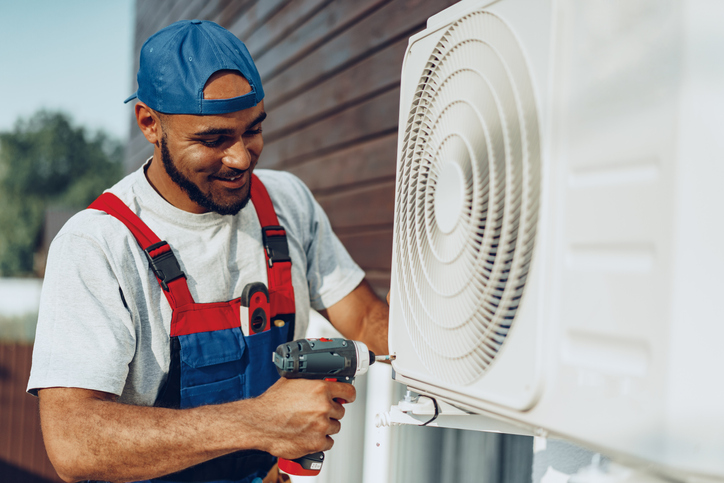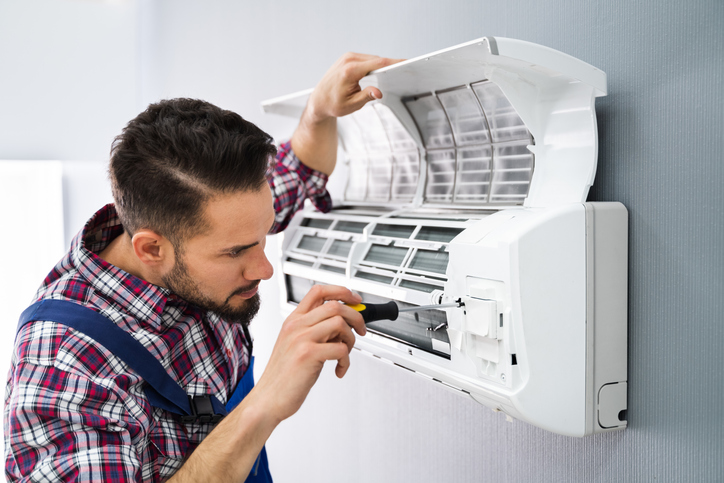
HVAC (Heating, Ventilation and Air Conditioning) systems are great for making life more comfortable. But when they’re not installed properly, they can be dangerous–causing fires, explosions or emitting toxic fumes. If you’re considering a career as an HVAC technician, you’ll be responsible for installing, repairing and maintaining these systems. In order to do so safely, you’ll need to be well versed in industry regulations and practices. When working with systems that utilize natural gas, propane, butane, hydrogen, methane, and mixed gasses, you’ll be adhering to a variety of gas codes or guides that dictate how to safely install and repair these systems based on the type of gas you’re working with.
At North American Trade Schools (NATS), you’ll become familiar with relevant gas codes–in addition to building other practical skills and knowledge for a career as an HVAC technician. Below, learn more about what gas codes are and why your knowledge of them will be important after completing your HVAC training at the North American Trade Schools.
What are Gas Codes?
Gas codes are used by technicians and inspectors to guide the safe installation of appliances and piping. As an HVAC technician, you’ll need to ensure that you’re familiar with the codes in the municipality where you’re working before installing, repairing or inspecting a fuel system. There are several key codes to follow when it comes to working with fuel systems. For one, you’ll learn about the International Fuel Gas Codebook (IFGC), a widely used guide agreed upon by engineers but not to be confused with manufacturer codes. Manufacturer codes supersede the IFGC when the two conflict, as all products from manufacturers, are tested by regulatory agencies before approval.

What’s in the International Fuel Gas Codebook?
The International Fuel Gas Codebook contains eight chapters of important safety information. In your HVAC technician courses, you’ll receive guidance on how to interpret and apply the information in the IFGC to your work on site. The first chapter deals with administration; defining what is covered under each code and the provisions put in place for departments of inspection. The second chapter covers important definitions. Chapter three outlines general safety regulations such as hazardous locations for appliances, combustion, dilution air, and ventilation requirements. The following chapters outline best practices for gas piping installations, chimneys and vents, specific appliances, gaseous hydrogen systems and more. Equipped with the knowledge of the IFGC after your training, you’ll be prepared to safely and knowledgeably perform work on any HVAC system.

When Can You Expect to Use Gas Codes as an HVAC Technician?
When you begin your career in HVAC, you’ll use the IFGC and other regional and manufacturer gas codes to guide your approach to installing, maintaining, and repairing gas systems. Throughout your career, you’ll want to consistently refresh your knowledge of gas codes, keeping updated on any regulatory changes.
If you’re seeking a career as an HVAC technician, it’s important to prepare for the workforce with hands-on instruction and gain practical experience using state-of-the-art equipment. At NATS, our HVAC Technician Diploma Program offers a high level of support for students, and you can expect to learn everything you need to know about gas codes and safety regulations from our experienced instructors.
Ready to start HVAC school?
Contact NATS today!





